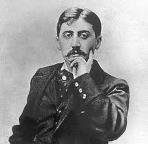 (Follow the links for Part I, Part II, Part III and Part IV.)
(Follow the links for Part I, Part II, Part III and Part IV.)
In this final post on the FCC’s Dev. 23, 2010 Open Internet Report and Order, I’ll look briefly at the problematic legal foundation on which the FCC has built its new regulations on broadband Internet access. That discussion need only be brief largely because the extended legal analysis has already been admirably detailed by FCC Commissioner Robert McDowell. His dissent (see pages 145-177 of the Report and Order) calmly and systematically dismantles the case made by the majority (See ¶¶ 115-150).
This is no theoretical discussion of statutory interpretation. Even before the rules have been published on the Federal Register, two broadband providers—Verizon and then MetroPCS—have already filed lawsuits in the D.C. Circuit Court of Appeals challenging the FCC’s authority to regulate. (See Jim DeLong’s definitive deciphering of Verizon’s efforts to secure exclusive jurisdiction in the D.C. Circuit) The arguments sketched out in Commissioner McDowell’s dissent are likely to mirror the complainants’ briefs in these and likely other Petitions for Review of the Order.
Continue reading →
 I reported for CNET yesterday on highlights from the State of The Net 2011 conference. Though I didn’t attend last year’s event, I suspect much of the conversation hasn’t changed.
I reported for CNET yesterday on highlights from the State of The Net 2011 conference. Though I didn’t attend last year’s event, I suspect much of the conversation hasn’t changed.
For an event that took place nearly a month after the FCC’s “final” vote on net neutrality, the issue seems not to have quieted down in the least. A fiery speech from Congresswoman Martha Blackburn promised a “Congressional hurricane” in response to the FCC’s perceived ultra vires decision to regulate where Congress has refused to give it authority, a view supported by House and Senate counsel who spoke later in the day. Continue reading →
 This is Part IV of a five-part commentary on the FCC’s Dec. 23, 2010 “Open Internet” Report and Order.
This is Part IV of a five-part commentary on the FCC’s Dec. 23, 2010 “Open Internet” Report and Order.
Part I looked at the remarkably weak justification the majority gave for issuing the new rules.
Part II explored the likely costs of the rules, particularly the undiscussed costs of enforcement that will be borne by the agency and accused broadband access providers, regardless of the merits. (See Adam Thierer’s post on the first attenuated claim of violation, raised before the rules even take effect.)
Part III compared the final text of the rules to earlier drafts and alternative proposals, tracing the Commission’s changing and sometimes contradictory reasoning over the last year.
Part IV, (this part), looks at the many exceptions and carve-outs from the rules, and what, taken together, they say about the majority’s dogged determination to see the Internet as it was and not as it is or will become.
Part V will review the legal basis on which the majority rests its authority for the rules, likely to be challenged in court.
What does an Open Internet mean?
The idea of the “open Internet” is relatively simple: consumers of broadband Internet access should have the ability to surf the web as they please and enjoy the content of their choice, without interference by access providers who may have financial or other anti-competitive reasons to shape or limit that access. Continue reading →
 For CNET, I posted a long piece describing a full day at CES’s Tech Policy Summit largely devoted to spectrum issues. Conference attendees in several packed sessions heard from FCC Chairman Julius Genachowski and three of the four other FCC Commissioners (Commissioner Copps was absent due to illness), as well as former Congressman Rick Boucher and industry representatives.
For CNET, I posted a long piece describing a full day at CES’s Tech Policy Summit largely devoted to spectrum issues. Conference attendees in several packed sessions heard from FCC Chairman Julius Genachowski and three of the four other FCC Commissioners (Commissioner Copps was absent due to illness), as well as former Congressman Rick Boucher and industry representatives.
The message was as clear as it is worrisome. The tremendous popularity of wireless broadband, on view in a remarkable range of new devices and gizmos on display at the Vegas Convention Center, is rapidly outpacing the radio frequencies available to handle the data.
The mobile Internet needs more spectrum, and there isn’t any to give it. The app revolution is in danger of hitting a hard stop, perhaps as soon as 2015.
As the exclusive manager of America’s radio waves, only the FCC can reallocate spectrum. And the good news is that the agency recognizes the crisis as well as its role in solving it. Chairman Genachowski told the audience that spectrum reform will be the agency’s top priority for 2011.
Reading the Chairman’s prepared comments, however, I was struck by the sense that I’d heard something similar before. Perhaps in the very same room. Perhaps by the very same speaker. Continue reading →
I published an article for CNET late last night on a spirited debate at CES yesterday over the FCC’s recently-enacted “open Internet” rules, aka net neutrality. Panelists from the FCC, Congress, AT&T, Verizon, Google and the Center for Democracy and Technology actually agreed on one point, which is that the neutrality saga has only completed its first chapter.
(The session was the most popular of the day. Several people were turned away from the packed room, and former Congressman Rick Boucher and FCC Commissioner Mignon Clyburn almost didn’t get in!)
While some panelists believe the next step is more regulation, others promised Congressional and perhaps court challenges aimed at undoing the Commission’s “Christmas Surprise.” As I note in the piece, the new Congress, with its Republican majority in the House, has already taken up reversing the rulemaking as a priority. Rep. Marsha Blackburn has introduced legislation, signed by 60 other members including at least one Democrat, that would make clear the FCC’s lack of authority over broadband access. Continue reading →

In Part I of this analysis of the FCC’s Report and Order on “Preserving the Open Internet,” I reviewed the Commission’s justification for regulating broadband providers. In Part II, I looked at the likely costs of the order, in particular the hidden costs of enforcement. In this part, I compare the text of the final rules with earlier versions. Next, I’ll look at some of the exceptions and caveats to the rules—and what they say about the true purpose of the regulations
In the end, the FCC voted to approve three new rules that apply to broadband Internet providers. One (§8.3) requires broadband access providers to disclose their network management practices to consumers. The second One (§8.4) prohibits blocking of content, applications, services, and non-harmful devices. The third One (§8.5) forbids fixed broadband providers (cable and telephone, e.g.) from “unreasonable” discrimination in transmitting lawful network traffic to a consumer.
There has of course been a great deal of commentary and criticism of the final rules, much of it reaching fevered pitch before the text was even made public. At one extreme, advocates for stronger rules have rejected the new rules as meaningless, as “fake net neutrality,” “not neutrality,” or the latest evidence that the FCC has been captured by the industries it regulates. On the other end, critics decry the new rules as a government takeover of the Internet, censorship, and a dangerous and unnecessary interference with a healthy digital economy. (I agree with that last one.)
One thing that has not been seriously discussed, however, is just how little the final text differs from the rules originally proposed by the FCC in October, 2009. Indeed, many of those critical of the weakness of the final rules seem to forget their enthusiasm for the initial draft, which in key respects has not changed at all in the intervening year of comments, conferences, hearings, and litigation. Continue reading →
 In my previous post on the FCC’s Open Internet Report and Order, I looked at the weak justification given for the new rules the Commission approved on Dec. 21, 2010
In my previous post on the FCC’s Open Internet Report and Order, I looked at the weak justification given for the new rules the Commission approved on Dec. 21, 2010
In this post, an aside on the likely costs of the rules, and in particular the costs of enforcement.
Last week was the 100th birthday of Nobel prize-winning economist Ronald Coase, a remarkable man I have had the great fortune to know personally. Among his many contributions to the field, Coase has always advocated for more empirical research and other data collection to help lead the field out of its theoretical quagmire. To that end, Coase co-founded the International Society for New Institutional Economics, and served as its first President in 1996.
Unfortunately, the FCC, which owes a great debt to Coase for his early championing of auctions for radio spectrum, does not seem to have learned much else from his work. In a section optimistically captioned, “The Benefits of Protecting the Internet’s Openness Exceed the Costs” (¶¶ 38-42), the Commission makes no effort to calculate either with any hint of rigor. Wishing away serious economic analysis, the Report simply states that “By comparison to the benefits of these prophylactic measures, the costs associated with the open Internet rules adopted here are likely small.”
Continue reading →
 At the last possible moment before the Christmas holiday, the FCC published its Report and Order on “Preserving the Open Internet,” capping off years of largely content-free “debate” on the subject of whether or not the agency needed to step in to save the Internet.
At the last possible moment before the Christmas holiday, the FCC published its Report and Order on “Preserving the Open Internet,” capping off years of largely content-free “debate” on the subject of whether or not the agency needed to step in to save the Internet.
In the end, only FCC Chairman Julius Genachowski fully supported the final solution. His two Democratic colleagues concurred in the vote (one approved in part and concurred in part), and issued separate opinions indicating their belief that stronger measures and a sounder legal foundation were required to withstand likely court challenges. The two Republican Commissioners vigorously dissented, which is not the norm in this kind of regulatory action. Independent regulatory agencies, like the U.S. Courts of Appeal, strive for and generally achieve consensus in their decisions. Continue reading →
 I recorded a commentary today for KQED–NPR in the Bay Area–on the importance of the National Broadband Plan. In the wake of tumult over net neutrality, Title II, and other regulatory gibberish, the important goals of the NBP, published in March of 2010, have been lost. That’s unfortunate, because the authors did a great job of setting out ambitious goals essential to maintain U.S. competitiveness. The plan also relies for funding on private investment and incentives, giving it a realistic chance of success.
I recorded a commentary today for KQED–NPR in the Bay Area–on the importance of the National Broadband Plan. In the wake of tumult over net neutrality, Title II, and other regulatory gibberish, the important goals of the NBP, published in March of 2010, have been lost. That’s unfortunate, because the authors did a great job of setting out ambitious goals essential to maintain U.S. competitiveness. The plan also relies for funding on private investment and incentives, giving it a realistic chance of success.
While recent polls indicate that few Americans want the government involved in encouraging adoption of broadband, I believe this is one example where intervention–if only of the cheerleading and goal-setting variety–is appropriate. As I’ve written extensively elsewhere, the Internet’s success is a function of network effects, as succinctly described by Metcalfe’s Law. The more people who have broadband access, the more valuable the network is for everyone. And the better the chances for serendipitous new uses and applications to flourish.
Those of us who already have broadband access, in other words, would benefit just as much from getting non-users online as those users themselves.
Perhaps even more.
Late last night, FCC Chairman Julius Genachowski made explicit what he’d been hinting for weeks–that he was going to call for a vote in December on the agency’s long-running net neutrality proceedings.
Today, the Chairman gave a speech outlining a new version of the rules he has circulated to fellow Commissioners, which will be voted on on Dec. 21, 2010..
The new order itself has not yet been made public, however, and the Chairman’s comments didn’t give much in the way of details. The latest version appears to reflect the proposed legislation circulated before the mid-term recess by then-Commerce chair Henry Waxman. That version, for those following the ball here, was itself based on the legislative framework proposed by Google and Verizon, which itself emerged from informal negotiations convened over the summer at the FCC. Continue reading →
 (Follow the links for Part I, Part II, Part III and Part IV.)
(Follow the links for Part I, Part II, Part III and Part IV.)







 The Technology Liberation Front is the tech policy blog dedicated to keeping politicians' hands off the 'net and everything else related to technology.
The Technology Liberation Front is the tech policy blog dedicated to keeping politicians' hands off the 'net and everything else related to technology.